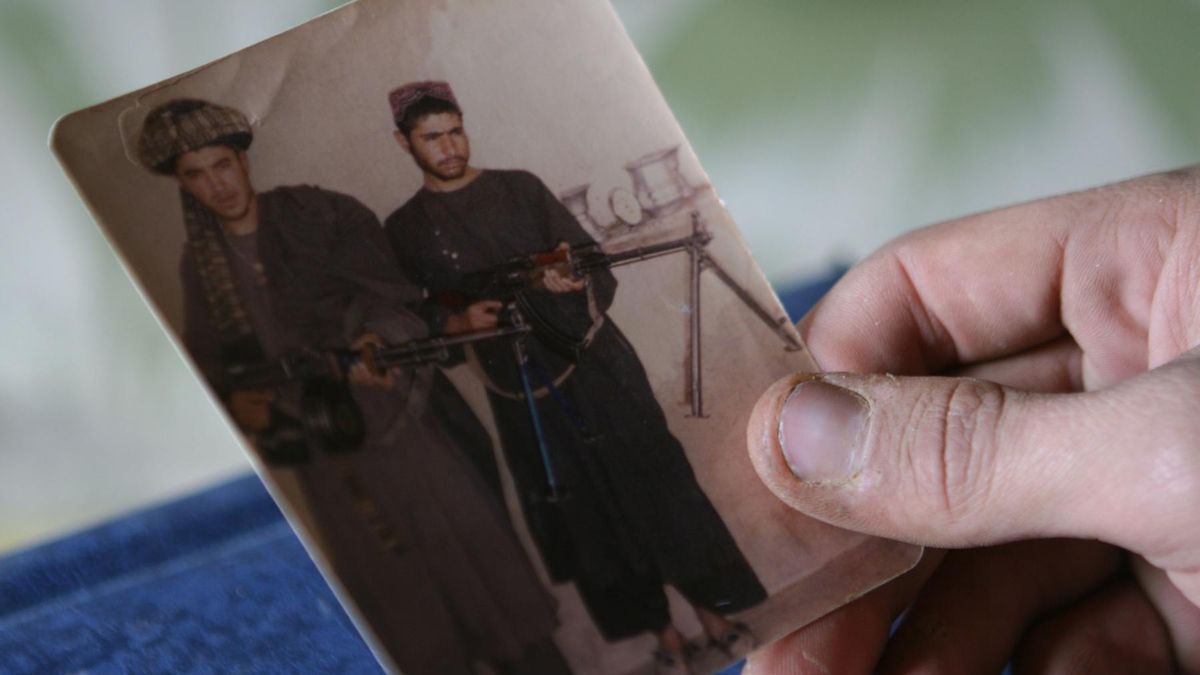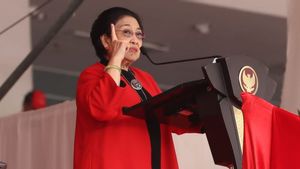JAKARTA - The history of the Taliban group as the ruler of Afghanistan was established due to political turmoil when the Soviets left Afghanistan in 1989. Even this Islamic fundamentalist group was large thanks to funding from the United States (US). Now the battle is going on between the Taliban and the US.
At the beginning of its emergence, the group raised by Mullah Mohammed Omar was considered a savior. In reality, the Taliban or Mujahideen regimes are the same, they are fundamentalist, brutal, and anti-women.
The emergence of the Taliban itself is closely related to the events of the 1979-1989 Afghanistan war. This war actually has its roots in the 19th century. The trigger was because the British Empire and Tsardom of Russia began to see Afghanistan as an important territory that would perpetuate the power of the two countries.
Since then Afghanistan has been transformed into a field known as the Great Game: a competition between Britain and Russia for control of South Asia to the Persian Gulf. The Great Game, in fact, is not merely at the level of rhetoric and diplomacy.
War with the Afghans was launched. Britain went to war three times to gain influence so that the Afghan government did not side with the Soviets. Even though Britain won over Afghanistan, Afghanistan was emotionally inclined towards the Soviets.
Even more familiar, when the Bolshevik Revolution in the Soviets broke out. Meanwhile, Afghanistan became the first country to recognize Lenin's government. Instead, the Soviets became Afghanistan's main protectors.
“In 1977, although Moscow was Afghanistan's main protector, Sardar Mohammed Daoud Khan's (Afghanistan's President) efforts to seek other foreign support led to a deterioration in relations between the two countries. It was culminated by a heated debate between Daoud and Leonid Brezhney in the Kremlin,” wrote Nino Oktorino in the book Afghanistan 1979-1989: Soviet Communist Army VS Mujahideen (2020).
This dissimilarity of vision made the Soviets furious, wanting to take over Afghanistan entirely. At its peak, the Soviets sent the 40th army they used in World War II to invade Afghanistan in 1979.
After that, the Soviets established a puppet government in communist-leaning Afghanistan. Until then, there was resistance from various Muslim groups who called themselves the Mujahideen troops, aka people who fought jihad.
The jihad narrative made the resistance of the mujahid stronger. This is because the issue of war is not only seen as a mere territorial struggle, but is more personal. The struggle between various Islamic groups against atheists.
Therefore many of the Mujahideen guerrillas came from thousands of volunteers all over the world. Thanks to financial support and weapons from the US, this group then forced the Soviet Union to withdraw its troops in 1989.
“In 1989, the Soviet Union withdrew its troops from Afghanistan following its defeat by the Mujahideen forces. Mujahideen who were not willing to sign a peace treaty regarding the withdrawal of Soviet troops continued to fight against government forces. The Mujahideen obtained weapons from the US through Pakistani intermediaries.”
"They rejected the offer of Najibullah, the last president of the Soviet-backed Afghan government, to make peace and share power and refused to participate in any government that included communists," said Anton Kurnia in the book From Taliban Prison To Faith (2007).
The rise of the Taliban
The departure of the Soviet Union did not necessarily bring peace to Afghanistan. The Civil War continues. The largest was the civil war between Mujahideen commanders in 1992.
Afghanistan's capital, Kabul, is hit by hundreds of rockets almost every day. The war then made Burhanuddin Rabbani of the Tajik ethnicity serve as interim president from July to December 1992. He was then appointed full president in January 1993.
The election of Burhanuddin Rabbani in fact caused jealousy. The Mujahideen from the Pashtun ethnic group felt that their group was more suitable for holding the mandate to lead Afghanistan.
The Mujahideen from the Pashtun ethnic group formed an Islamic fundamentalist group called the Taliban in September 1994. They are dominated by the santri group from the Pashtun ethnic group who want the restoration of security and peace based on real Islamic law.
The Taliban itself comes from the plural form of the Arabic talib which means the claimant or seeker of knowledge (boys). In Pashtun, the talib becomes the Taliban. The new Pashtun identity as the Taliban gives Afghanistan new strength. In the eyes of the little people the Taliban is a savior.
This sympathy was formed because the Taliban were not like the Mujahideen who often looted, raped, or kidnapped those they considered enemies. Sympathy grew even more when the Islamic fundamentalist group saved a child from being kidnapped by one of the Mujahideen groups.

According to Tempo.co, the Taliban group later turned into a movement that intends to destroy a government that does not conform to the concept of Islamic teachings. After capturing Kabul, the Taliban moved quickly until they took over the government in September 1996.
It was during the reign of the Taliban that Afghanistan became the only Islamic country that implemented Islamic laws. The Islamic law that he applies makes the Taliban prohibit many things that are contrary to religion, especially things that they think are of minimal benefit, have many disadvantages.
These include prohibiting alcohol, cinema, music, internet, television, and photography. Not only that. The Taliban later became the architects who built Afghanistan as a women's prison. Every woman in Afghanistan is restrained. They were barred from going to school until employment was restricted until the Taliban stepped down in late 2001.
“The provisions that demean and restrict women are seen as important by the Taliban to prevent their country from falling into the abyss of crime and abuse, as has happened in Western countries with the emancipation of women. However, these provisions have in fact made women miserable,” concluded Taufik Adnan Amal in the book Politics of Islamic Sharia: From Indonesia to Nigeria (2004).
*Read other information about the history of the world or read other interesting articles from Detha Arya Tifada.
Other MEMORIESThe English, Chinese, Japanese, Arabic, and French versions are automatically generated by the AI. So there may still be inaccuracies in translating, please always see Indonesian as our main language. (system supported by DigitalSiber.id)












